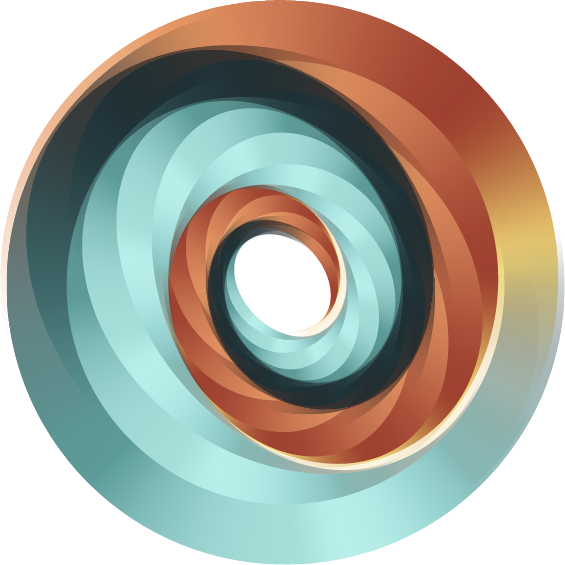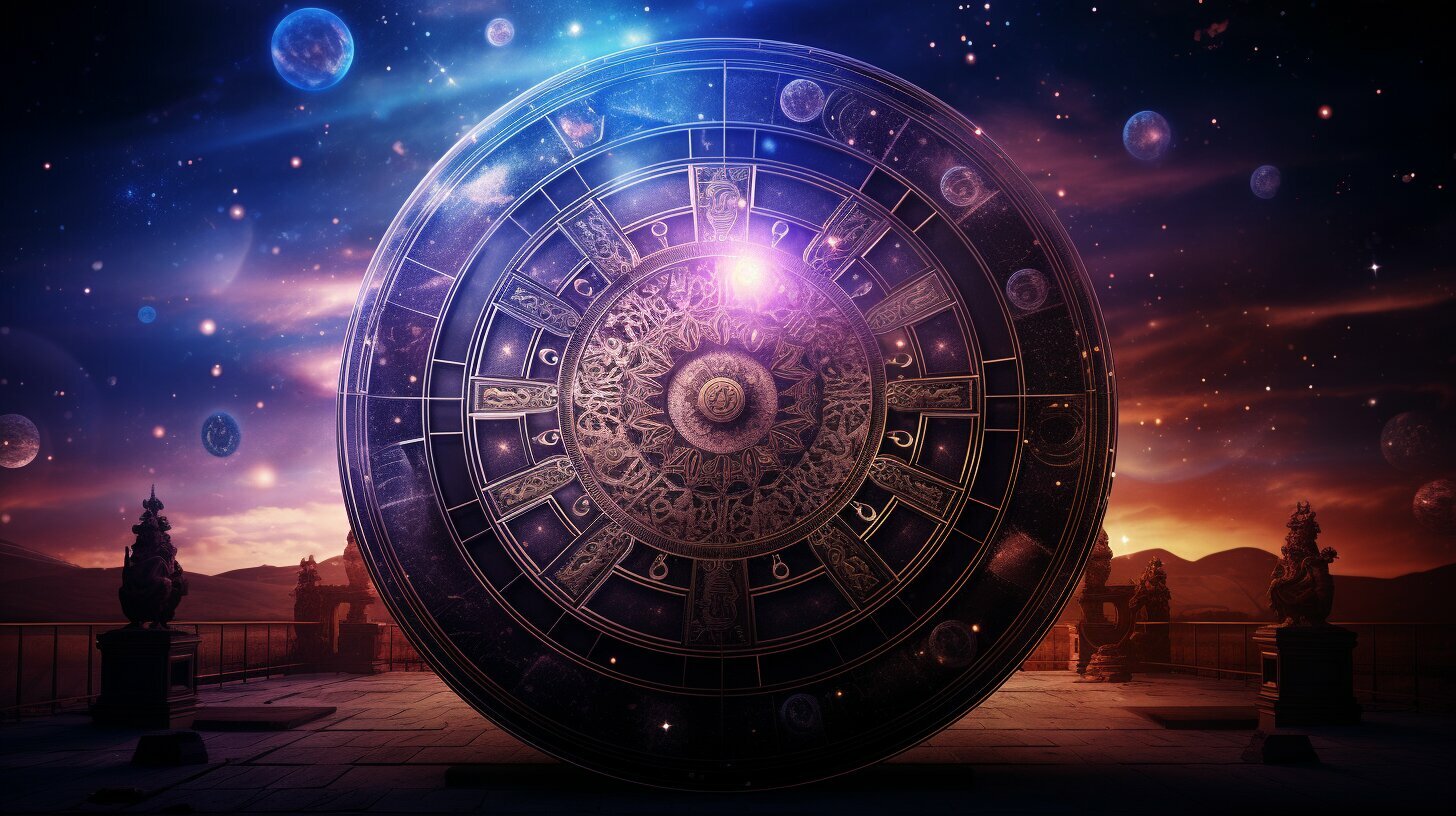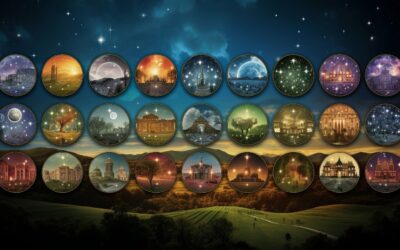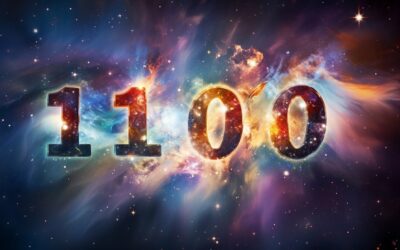Many individuals turn to astrology for guidance and clarity in their lives. However, the question remains: can astrology be trusted? In this article, we will explore the trustworthiness of astrology, delve into its origins and components, and examine the scientific perspective, personal experiences, and critiques surrounding it. By the end of this journey, we will better understand whether astrology can be relied upon as a tool for personal growth and decision-making.
Key Takeaways:
- Understanding the reliability and trustworthiness of astrology is essential in determining its usefulness.
- Examining the historical roots and fundamental components of astrology can lend insight into its authenticity and effectiveness.
- Considering personal experiences and scientific research on astrology can offer a broader understanding of its trustworthiness.
- Exploring alternative perspectives on astrology can provide a more comprehensive view of its potential uses.
The Origins of Astrology
I find it essential to understand the historical roots of astrology when assessing its trustworthiness. Astrology has been present in human history for thousands of years, with evidence of its existence found in ancient civilizations such as Egypt, Babylon, and Greece.
Ancient astrologers observed the movement of celestial bodies and recognized their influence on human life. They believed that the positions of the planets and stars at the time of a person’s birth could reveal insights into their personality, life path, and future events.
| Ancient Astrology: | The study of the movement of celestial bodies and their influence on human life. |
|---|---|
| Belief: | Positions of planets and stars at the time of a person’s birth could reveal insights into their personality, life path and future events. |
Astrology evolved, with discoveries and interpretations influencing its practice. The creation of the zodiac system, consisting of twelve astrological signs, provided a framework for interpreting the positions of the planets and stars in relation to a person’s birth chart.
| Zodiac System: | A framework for interpreting the positions of the planets and stars in relation to a person’s birth chart. |
|---|
Astrology continues to be a widely practiced and respected discipline, with many individuals seeking its guidance in various aspects of their lives. Understanding its origins can provide insight into its authenticity and why it has stood the test of time as a valuable tool for self-discovery and personal growth.
The Components of Astrology
As I mentioned earlier, to understand the trustworthiness of astrology, one must understand its components. Astrology is made up of various elements, including celestial bodies, zodiac signs, and astrological houses. The positions and movements of these elements are then used to provide insights into one’s life and future.
Let’s start with the celestial bodies. These are the stars, planets, and other heavenly bodies that are visible to the naked eye or can be detected through telescopes. Astrology uses these celestial bodies to formulate horoscopes and interpret the positions of celestial objects at the time of an individual’s birth.
| Celestial Body | Significance in Astrology |
|---|---|
| The Sun | Represents the self, ego, and vitality |
| The Moon | Represents emotions, instincts, and inner self |
| Mercury | Represents communication, thinking, and intellect |
| Venus | Represents love, beauty, and pleasure |
| Mars | Represents energy, action, and desire |
| Jupiter | Represents growth, expansion, and abundance |
| Saturn | Represents limitations, structure, and discipline |
| Uranus | Represents change, innovation, and rebellion |
| Neptune | Represents intuition, dreams, and spirituality |
| Pluto | Represents transformation, power, and regeneration |
The second component of astrology is zodiac signs. These are the 12 astrological signs that are based on the position of the sun at the time of an individual’s birth. Each zodiac sign has its unique characteristics and traits that are believed to influence a person’s personality and life path.
- Aries (March 21 – April 19)
- Taurus (April 20 – May 20)
- Gemini (May 21 – June 20)
- Cancer (June 21 – July 22)
- Leo (July 23 – August 22)
- Virgo (August 23 – September 22)
- Libra (September 23 – October 22)
- Scorpio (October 23 – November 21)
- Sagittarius (November 22 – December 21)
- Capricorn (December 22 – January 19)
- Aquarius (January 20 – February 18)
- Pisces (February 19 – March 20)
Lastly, there are the astrological houses. This astrology component refers to dividing the sky into 12 different sections, with each house representing different areas of life, such as relationships, career, and spirituality. The position of celestial bodies within each house is believed to yield insights into an individual’s life path.
“By understanding the three key components of astrology, we can gain a deeper appreciation for the insights and guidance that astrology can provide.”
The Role of Astrology in Personal Guidance
Numerous individuals turn to astrology for guidance and insight into their personal lives. While some may dismiss astrology as nothing more than superstition, many believe in its ability to provide clarity and understanding.
Astrology can offer predictions about personal traits, future events, and the compatibility of individuals. While the accuracy of these predictions is up for debate, many individuals find comfort and guidance in the insights provided by astrology.
One aspect of astrology that has been praised for its accuracy is the natal chart. This chart combines information about the positions of celestial bodies at the time of an individual’s birth to provide a personalized analysis of their personality and potential life path.
However, it is important to note that astrology should not be solely relied upon for important decisions. It should be used as a tool for self-discovery and reflection, rather than a definitive guide for action.
Overall, the role of astrology in personal guidance should be approached with an open mind and a grain of skepticism. While it may not be for everyone, astrology can offer valuable insights and perspectives on one’s life that can aid in personal growth and understanding.
The Scientific Perspective on Astrology
Having worked alongside scientists, I have to acknowledge that the scientific community often questions the credibility of astrology. While astrology has been practiced for thousands of years, scientific research on its validity remains inconclusive.
Despite a lack of empirical evidence supporting astrology, believers argue that personal experiences and testimonials prove its effectiveness. On the other hand, skepticism maintains that astrology is pseudoscience and rejects its legitimacy entirely.
The Skeptical Viewpoint
Many skeptics argue that astrology lacks a sound scientific basis and dismiss it as a superstition. They point out that astrologers’ claims and their predictions are vague and subjective, making it difficult to objectively evaluate astrology’s accuracy.
Moreover, skeptics argue that astrological predictions are often self-fulfilling prophecies, as individuals may subconsciously alter their behavior to match the predictions they receive. Some critics have even accused astrologers of being fraudulent, taking advantage of vulnerable individuals seeking answers and guidance.
The Scientific Research
There have been several attempts to study the validity of astrology scientifically, with varying results. Some studies have found correlations between certain astrological signs and personality traits or life events, while others have found no evidence to support astrological claims.
Despite these mixed findings, it is worth noting that astrology has not been subject to the same rigorous testing and scrutiny as other scientific fields. Therefore, it is difficult to draw definitive conclusions about its accuracy or legitimacy based on the available evidence.
While the scientific community may be skeptical of astrology, it is important to note that individuals may still find value and guidance in it. I believe that personal experiences and beliefs are valid sources of guidance and personal growth, regardless of scientific validation.
The Personal Experience with Astrology
I have heard countless stories from individuals who have turned to astrology for personal guidance and self-reflection. Many of these individuals credit astrology with providing insights into their life path and helping them navigate challenging times.
One person shared with me that they were struggling with making a career decision and turned to astrology for guidance. After consulting with an astrologer and studying their birth chart, they gained clarity on their natural abilities and passions. They were able to make a confident decision and pursue a career path aligned with their true purpose.
Another individual explained that astrology helped them understand their relationship dynamics better. By studying their and their partner’s birth charts, they gained insights into their communication styles, love languages, and potential challenges in the relationship. Armed with this knowledge, they were able to make conscious choices and work towards a healthier partnership.
While personal experiences with astrology vary, these individuals’ stories illustrate how astrology can be a powerful tool for self-discovery and growth.
“The birth chart is a map of the soul’s potential, and astrology is a language for interpreting that potential. It’s not about fate or fortune-telling, but rather an invitation to self-awareness and personal responsibility.” – Lynn Bell
It is important to note that astrology should not be relied upon as the sole determining factor in making important life decisions. Instead, it can be used as a complementary tool to gain perspective and insights.
Personal experiences with astrology offer a unique perspective on its trustworthiness. While not everyone may have positive experiences or believe in its effectiveness, it is worth exploring for those who feel drawn to it.
The Role of Astrology in Free Will
Look, it is important to remember that we as individuals have the power of choice and free will to shape our lives. Some may question whether astrology conflicts with this belief.
While astrology can provide insights into potential challenges and opportunities, it does not determine one’s fate. It is merely a tool that can aid in navigating life’s journey.
Many astrologers believe that astrology operates on the principle of synchronicity, where celestial events align with events on Earth. This means that astrology can be viewed as a reflection of the interconnectedness of all things, rather than a deterministic force that controls our lives.
Ultimately, the role of astrology in free will is a complex and deeply personal question. It is up to each individual to determine how they integrate astrology into their understanding of the world and their own agency.
Skepticism and Critiques of Astrology
While many people rely upon astrology for guidance, there exist claims and criticisms that question its legitimacy. Detractors argue that astrology is nothing more than superstition, lacking any scientific basis or empirical evidence to support its claims. Although astrologers point out the accuracy of their predictions, such claims are often vague and general enough to be interpreted in any number of ways.
One of the most common criticisms of astrology is that it is purely coincidental. Skeptics argue that the correlations between celestial bodies and human behavior are random, whimsical, and have no causal relationship. Astrology’s critics also point out that astrologers often use cold reading techniques, making vague statements that could apply to anyone, then letting the individual interpret those statements to their particular situation.
“Astrology represents the sum of all the psychological knowledge of antiquity.” – Carl Jung
Another critique of astrology is that it is deterministic, removing the power of individual agency and free will. If astrology is accurate, then the very course of one’s life and choices are predetermined, rendering personal choices irrelevant.
Despite these criticisms, astrologers and believers in astrology remain undeterred. They contend that astrology is a tool, a method for understanding one’s self and the world around them. Astrology is not about making predictions but rather about self-reflection and contemplation. From this perspective, astrology can be a valuable tool for personal growth, regardless of its accuracy in predicting the future.
Alternative Perspectives on Astrology
While some may question the trustworthiness of astrology, I believe it can be a powerful tool for self-reflection and personal growth. Rather than relying solely on astrology for predictions or answers, it can be used as a means of gaining insight into one’s own behavior and patterns.
It is important to remember that astrology does not determine our fate or choices but can provide guidance and understanding as we navigate through life. By understanding the components of astrology, such as astrological signs and celestial bodies, we can better understand ourselves and our relationships with others.
“The purpose of astrology is not to tell you what you will experience, but to provide a framework for understanding the experiences you will have.”
Through personal experience, I have seen the benefits of using astrology as a tool for self-reflection and gaining a deeper understanding of my own journey. The insights provided by astrology have helped me to make more informed decisions and navigate challenging times with greater clarity and confidence.
While astrology may not be for everyone, I encourage those who are curious to explore it as a means of gaining greater self-awareness and personal growth. By approaching astrology with an open mind and a willingness to learn, it can be a valuable tool in our journey towards wholeness and fulfillment.
Conclusion
After exploring the complex world of astrology, I believe that it can be trusted as a tool for self-reflection and personal growth. While there are some critiques and skepticism surrounding astrology’s validity, my personal experiences and research have shown me that it can provide valuable insights and guidance.
It is important to approach astrology with an open mind and use it as one of many tools for understanding ourselves and the world around us. Astrology should not be viewed as a deterministic force, but as a tool for self-awareness and growth.
Final Thoughts
I encourage individuals to explore astrology for themselves and see how it can be integrated into their lives. Whether you view astrology as a guiding force or simply as a fun pastime, it can offer valuable insights and new perspectives.
Remember to approach astrology with a critical eye and never let it override your own agency and free will. Ultimately, we are the creators of our own destinies, but astrology can serve as a powerful tool in helping us understand and navigate the path ahead.
FAQ
Q: Can astrology be trusted?
A: Yes and no. Astrology should be approached with a critical eye, and you should not let it completely dictate your own agency. We are the creators of our own destiny, and astrology can be a helpful tool that we can trust in helping us understand and navigate the path forward, but it is by no means a replacement for our own critical thinking.
Q: What are the origins of astrology?
A: To understand the trustworthiness of astrology, it is essential to delve into its origins. In this section, we will explore the ancient roots of astrology and its evolution over time. By understanding the history of astrology, we can gain insights into its authenticity and the reasons why people have relied upon it for centuries.
Q: What are the components of astrology?
A: To assess the trustworthiness of astrology, it is crucial to understand its components. There are many components, such as astrological signs, celestial bodies, and zodiac signs.
Q: What role does astrology play in personal guidance?
A: Many individuals turn to astrology for personal guidance and predictions. The role astrology plays in providing guidance and insights into one’s life varies by individual. By examining its accuracy in predicting future events or understanding personal traits, we can determine whether astrology can be trusted as a tool for self-discovery and decision-making.
Q: What is the scientific perspective on astrology?
A: The scientific community often questions the credibility of astrology. In this section, we will explore the scientific perspective on astrology, including skepticism and research conducted on its validity. By examining both sides of the argument, we can gain a comprehensive understanding of astrology’s trustworthiness from a scientific standpoint.
Q: What is the personal experience with astrology?
A: Personal experiences and testimonials from individuals who have relied upon astrology can provide insight into its trustworthiness. In this section, we will explore the personal experiences and perspectives of astrology believers. By understanding their stories and how astrology has impacted their lives, we can evaluate whether astrology is a trustworthy practice.
Q: What is the relationship between astrology and free will?
A: The concept of free will is often debated in astrology. In this section, we will discuss the relationship between astrology and free will, examining whether astrology is deterministic or allows for individual choices and actions. By understanding this aspect, we can assess the trustworthiness of astrology in providing guidance while respecting personal agency.
Q: What are the skepticism and critiques of astrology?
A: It is important to address skepticism and critiques of astrology to evaluate its trustworthiness objectively. In this section, we will explore common skepticism, criticisms, and debunked claims surrounding astrology. By acknowledging and examining these viewpoints, we can make an informed judgment about astrology’s credibility.
Q: Are there alternative perspectives on astrology?
A: Aside from trustworthiness and skepticism, astrology can be viewed from alternative perspectives. In this section, we will explore how astrology can be utilized as a tool for self-reflection, personal growth, and understanding. By examining these alternative perspectives, we can broaden our understanding of astrology beyond its reliability.
Q: What is the conclusion regarding the trustworthiness of astrology?
A: After exploring the reliability, trustworthiness, and credibility of astrology, we can now draw a conclusion. In this section, we will summarize our findings and provide a final assessment of whether astrology can be trusted. By considering all the information presented in this article, you will be equipped to make an informed decision about the role astrology can play in your life.




